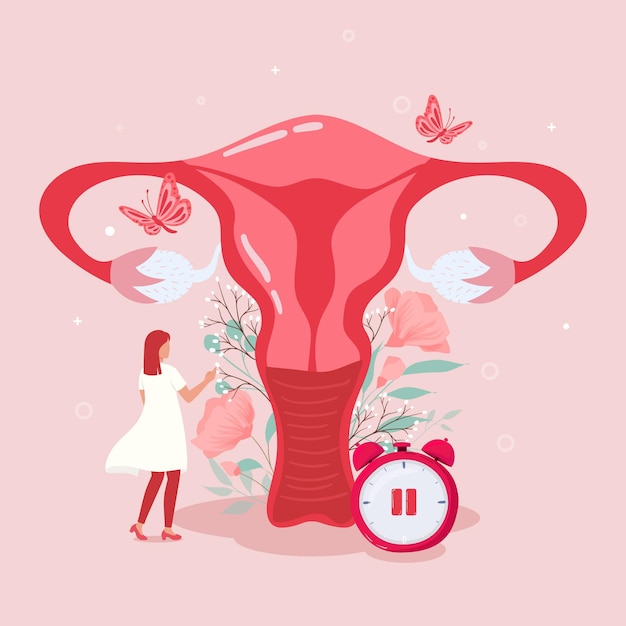
Polycystic ovary syndrome, or PCOS for short, is a common health issue caused by an imbalance of hormones in women of reproductive age. It’s a leading cause of infertility and it can up the risk for other health problems like diabetes and heart disease. It often comes with symptoms like weight gain, irregular or skipped periods, and difficulties with getting pregnant.
We don’t know exactly what triggers PCOS, but certain factors might play a part. Some folks inherit it from their families. A surplus of testosterone, a hormone typically found in smaller amounts in women, might cause it. Another potential cause is resistance to insulin, a substance that controls blood sugar. The body might end up producing more insulin and, consequentially, more testosterone. Our diet can also contribute to the risk of PCOS, especially if it’s rich in processed, sugary and inflammatory foods.
PCOS comes with a variety of risks, from thyroid conditions and high blood pressure to diabetes, liver disease, abnormal uterine bleeding, mood disorders and sleep apnea. Not everyone experiences the same symptoms, but you might see things like acne, unusual hair growth, scalp hair thinning, skin darkening, headaches, and mood changes, among others.
But here’s some good news: it’s definitely manageable. One of the most effective routes is to live a balanced lifestyle. A healthy diet rich in iron and whole foods, engaging in physical activity and managing your stress can help a ton.
Ayurveda, an ancient healing practice from India, has also suggested several herbs that could be helpful. Ashwagandha is said to help manage stress and balance cortisol levels. Cinnamon could normalize menstrual cycles and reduce resistance to insulin. Chasteberry might stimulate and support pituitary gland reactions. Turmeric, another anti-inflammatory, might also aid in reducing insulin resistance.
While many of these herbs require further scientific investigation, Ayurvedic practices also suggest Panchakarma, a purification therapy, and yoga to help manage symptoms of PCOS. Relaxing yoga poses which open up the pelvic area can be immensely helpful.
Ultimately, it’s important to remember that managing PCOS is achievable with holistic measures involving lifestyle changes, diet adjustments, and possibly some Ayurvedic practices. Always be sure to consult your healthcare provider before making any significant changes.









